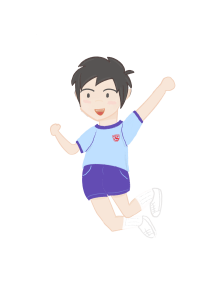
Principal's Message

Thank you, our Heavenly Father, for allowing the church to take on the mission of education, run schools and preach, and expand the kingdom of God.
“Therefore go and make disciples of all nations, baptizing them in the name of the Father and of the Son and of the Holy Spirit, and teaching them to obey everything I have commanded you. And surely I am with you always, to the very end of the age.”
(Matthew 28:19-20)
The church has been in operation for more than 60 years, and it adheres to the vocation from God to please God and people. Now to share the kindergarten’s philosophy and mission.
Taking “Christian Education” as the school’s core purpose, the curriculum is oriented to the needs of children’s learning and development. The curriculum is in line with the “Kindergarten Education Curriculum Guidelines” of the Hong Kong Education Bureau. The following elements are integrated according to the scope to expand the learning space. Three years of learning and growth can enhance different developmental abilities.6

Principal - Miss Wong Yuet Kei Kitty
Incorporating the teaching of the Bible:
The curriculum planning of Christian education incorporates religious elements, subtly understands beliefs, daily class worship and teaching plans, guides children’s learning intentions according to the biblical morals, develops religious courses according to age, and aims at learners.

Moral Education:
From infancy to childhood, things that children face and the life values they generate are to establish a conscience; they know that everyone has a post in society (teachers teach students, postmen send letters, firefighters put out fires, parents take care of children, drivers drive vehicles , the police maintain law and order, the children clean up their toys, etc.), which constitute their personal values, good morals that they are willing to take on work and responsibilities.
Problem solving skills:
Not everything is easy in life. Growing up, we often encounter difficulties. It is very important to learn problem-solving skills from an early age. Constantly trying with the teacher’s guidance, allowing children to complete their work uniquely and seek solutions to solve problems, which can enhance children’s confidence, courage in the face of failure and perseverance to achieve success.
“Child- Centeredness” as core value:
Taking child development as the priority, to understand the uniqueness of each child in order to develop a learning model that is child oriented. Now, based on Montessori’s educational philosophy, we will jointly explore topics that children are interested in. Introducing the teaching aid in a progressively complex manner, we will operate the teaching aids first-hand, from concrete to abstract, discuss problems and actively participate in them.
Play-based Learning:
“Play” is the way of learning and the process of exploration of the essence of children’s life, which runs through children’s lives and extends to the adult’s world. When children play, they learn language, understanding themselves and the extended world that surrounds them. The meaning of play is a form of self-spontaneity caused by intrinsic motivation. Focusing on the way and the process instead of the purpose and the result.
Development of modern play theory provide the theories below:
1.) Psychoanalysis: the fantasy of the play situation is used to face the problem hard. This situation, which is also manipulated in the fantasy, can help children face real life in a better way. Positive emotions to deal with.
2.) Constructivism: Piaget believes that play has a dual function, it is not only a way for children to understand the world, but also an indicator of children’s cognitive development. According to Piaget, the type of play a child present is indicative of their cognitive developmental abilities.
3.) Competence Motivation Theory: Play is a way for children to move around in their environment, while also making the activity more efficient and personal. When playing games, children can experience new things, arouse their inner curiosity, and they can gain knowledge, skills, and attitudes happily through games.
The three-year of learning incorporates elements, which allow children to think out of the box, activate their thinking abilities, improve their problem-solving skills, and create a pleasant learning environment. I hope that students will understand God’s creation and love! Full of motivation to learn, master the attitude of learning, and love to learn new things!


